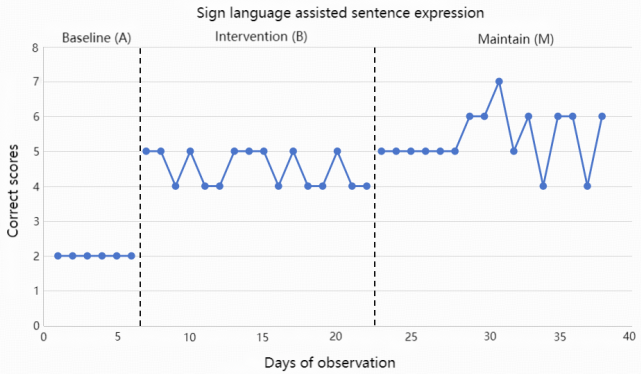

Volume 86
Published on May 2025Volume title: Proceedings of the 6th International Conference on Educational Innovation and Psychological Insights
This essay examines distinction made by David Hume between the "vulgar system" and the "philosophical system" as explanations for belief in the continued and distinct existence of objects. Via a reconstruction of the arguments by Hume, the essay analyzes how these systems attempt to account for human perceptual experience. The vulgar system conflates perceptions with objects, while the philosophical system posits a double existence of both, yet neither can adequately explain the causal link between them. Furthermore, the study engages with interpretations of readings on Hume by considering the double existence counterargument by Pears and the systematic explanatory hypothesis proposed by Mackie to circumvent the need for naive realism. Finally, the essay evaluates the strength of these criticisms and considers their implications for Hume's overall skeptical position regarding external objects. The skepticism of Hume regarding the possibility of establishing a firm foundation for epistemic belief in external objects remains potent, even in light of these attempts at providing alternative explanations.

 View pdf
View pdf


With the rapid digitalization of education, artificial intelligence (AI) has gained significant attention for its potential to transform teaching and learning. In the context of A-Level Biology, AI presents both opportunities and challenges. However, research specifically focusing on AI’s application in A-Level Biology teaching remains limited. This study, employing interviews as the primary method, aims to explore how AI can address specific challenges in A-Level Biology teaching. The main objectives are to understand how AI-assisted teaching differs from traditional teaching, its impact on teaching practices, and the potential benefits and drawbacks for teachers. The research used qualitative interviews with three A-Level Biology teachers from different teaching backgrounds to explore the influence in teaching when AI is used in A-Level Biology. The research finds that teachers acknowledged both the advantages, such as personalized resources and increased efficiency, and the challenges, such as potential loss of creativity and autonomy.

 View pdf
View pdf


The family environment plays a pivotal role in shaping children's educational outcomes. This paper examines how socioeconomic status, parental involvement, emotional climate, and material resources within households influence academic achievement, cognitive development, and socioemotional skills. Drawing on empirical studies and theoretical frameworks, the analysis highlights the interplay between familial factors and educational trajectories. For instance, children from low-income families often face systemic barriers such as limited access to tutoring and technology, while parental over-involvement may inadvertently harm intrinsic motivation. Additionally, the emotional dynamics of households—such as conflict resolution and parental warmth—mediate children’s stress levels and executive functioning, further impacting learning capacities. The findings underscore the need for holistic interventions, including equitable resource allocation and culturally responsive pedagogies, to mitigate disparities arising from unequal family environments. Notably, cultural capital, manifested through non-material assets like educational aspirations and social networks, also perpetuates inequalities by aligning certain groups with institutional norms. By synthesizing multidisciplinary perspectives from psychology, sociology, and education, this study provides actionable insights for policymakers, educators, and families, emphasizing the importance of addressing both material and psychosocial dimensions of child development. Practical recommendations include expanding early childhood education programs, fostering school-community partnerships, and implementing trauma-informed teaching practices to support vulnerable students. These strategies aim to dismantle systemic inequities and create inclusive pathways for academic success across diverse socioeconomic contexts.

 View pdf
View pdf


With the increasing of adolescents' mental health problems, especially the rising incidence of depression, the potential impact of family parenting style on adolescents' mental health has been widely concerned. This paper mainly studies the influence of family parenting style on adolescent depression and the effect of psychological counseling. The purpose of this study is to explore the relationship between different parenting styles and adolescent mental health, and to analyze the effective psychological intervention methods. This study uses the method of literature review to sort out the recent and past research results in related fields. The subjects included adolescents and their families, and the main tools were psychological research literature, statistical data and clinical case studies. Through the comparative analysis of the authoritative, authoritarian, permissive (liberal) loving, permissive uninvolved style and other different parenting styles, combined with the treatment cases of adolescent depression, to reveal the internal relationship between family parenting mode and adolescent depression. The findings suggest that authoritative parenting is the most beneficial for adolescent mental health, while parenting that is overly controlling or emotionally apathetic may increase the risk of depression. In addition, multimodal treatment regimes-such as a combination of cognitive behavioral therapy and medication-were significantly more effective than monotherapy in the intervention of adolescent depression. This paper emphasizes the important role of family parenting style in adolescent mental health, and provides theoretical support for related psychological intervention.

 View pdf
View pdf


Shadow education, also known as private tutoring or supplementary education, has attracted increasing research attention in the past two decades. In an effort o promote equity in education, the Chinese government has implemented a "Double reduction" policy to normalize tutoring institution and moderate the strained atmosphere caused by the educational race. However, This policy may exacerbate rather than reduce educational inequality. So far, studies have systematically reviewed the literature on the impact of shadow education from the perspective of educational inequality is relatively scarce. Therefore, based on literature search method and interviews with 5 parents, this paper provide a comprehensive overview of the implications of the "Double reduction" policy on shadow education and summarizes the implications for future practice and research. Research has found that the policy has triggered new educational equity pitfalls, including a surge in covert tutoring, and an increase in anxiety among some families, in the context of the "scores-only" theory in the college entrance examination.

 View pdf
View pdf



The League of Legends has been recognized as one of the most popular and influential games worldwide for many years. The success of the Riot team in designing and maintaining the game is both commendable and worth in-depth studying. This study examines the application of game psychology in League of Legends, highlighting how it fulfills a wide range of players’ psychological needs while fostering a sense of identity through its design and associated cultural products. These elements contribute to the remarkable level of engagement and its widespread appeal over time. By adopting a psychological perspective, the study expands the understanding of how League of Legends creates a fulfilling gaming experience. Furthermore, the findings aim to provide valuable theoretical guidance for future game development, helping developers design games that not only entertain but also connect with players on a deeper emotional and psychological level.

 View pdf
View pdf


The minors’ engagement with video games has become a global phenomenon. Meanwhile, in relevant research and psychological health interventions, the impact of video games on minors’ mental health has been confirmed to exist, and the impact is significant for their development. Based on existing findings, this study will analyze the mechanisms through which gaming behavior affects adolescents' mental health. From the perspective of how the impacts on the minors present, the articles that author reviewed can be categorized into three main themes regarding the mechanisms of affects: Mechanisms of Negative Impacts, Protective and Mitigating Factors, and Cultural and Demographic Variations. The study shows that video gaming’s impact on adolescent mental health is shaped by intricate interactions between individual behaviors, social contexts, and cultural influences. Emotional dysregulation and social withdrawal resulting from Internet Gaming Disorder (IGD) can lead to significant risks. Appropriately designed gaming interventions can promote the minors’ mental health, enhancing emotional regulation and cognitive abilities.

 View pdf
View pdf


Parental involvement is instrumental in shaping children's academic motivation and achievement. Over the past few decades, extensive research has examined the types of parenting styles and the influence on educational outcomes, but less attention paid to the level of parental involvement. The aim of this paper is to review the association between levels of parental involvement, within students of all ages in both home and academic settings and their academic motivation and performance, respectively. Relevant studies indicates that there is a positive correlation between parental involvement and students’ academic motivation and achievement. Higher levels of parental involvement were followed by a trend of higher student motivation and academic achievement, and conversely, lower levels of parental involvement were followed by lower student motivation and academic achievement. This review underscores the importance of fostering effective parental engagement strategies to optimize academic outcomes for students. Through highlighting the fours strategies of establishing clear communication, fostering a positive learning environment, participating in school events and engaging in student’s home and learning activities, parents can gain the skills to promote academic interests for their child and increase academic motivation and performance.

 View pdf
View pdf



Social impairment is one of the core symptoms of autism spectrum disorders, while the common issue among those affected is a significant delay in both receptive and expressive language development. This study aimed to investigate the effectiveness of augmentative sign language (ASL) for children with autism spectrum disorder (ASD) in improving their ability to describe situations. In accordance with the purpose of the study, the A-B-M experimental design of the single-study experimental method was used to conduct an instructional intervention with a 7-year-old child with autism who has a speech and language disorder. The independent variable was the supported sign language intervention programme, and the dependent variable was the ability of sign language to assist spoken description of situations including nouns, verbs, adjectives, quantifiers and prepositions. The results showed that augmentative sign language had an immediate and maintenance effect on the ability to describe a situation in children with autism who had language impairments.

 View pdf
View pdf


At present, students are experiencing growing pressure, especially from academic demands, societal expectations, and the challenges of personal development, all of which have a significant impact on their mental health. Mental resilience, referring to the ability to adapt and recover in the face of adversity, is a crucial quality that helps students cope with external pressures and continue their development. In recent years, there has been growing attention to the the vital role home-school collaboration plays in nurturing students’ mental resilience. Effective home-school collaboration creates a stable support system, thus helping students develop stronger coping mechanisms. As such, the study investigates the impact of home-school coordination on students’ mental resilience, focusing on how the collaboration between parents and schools influences students’ ability to cope. Through the analysis of relevant literature, this study provides an overview and analysis of the existing research on home-school collaboration and psychological resilience. The review synthesized findings from various sources to identify how does home-school coordination influence students’ mental resilience and what aspects of home-school collaboration enhance mental resilience. The results indicate that effective home-school coordination positively impacts students’ mental resilience. Key factors include consistent communication, joint problem-solving, as well as mutual support. Strong partnerships between parents and schools are essential for promoting students’ mental resilience and overall development.

 View pdf
View pdf




